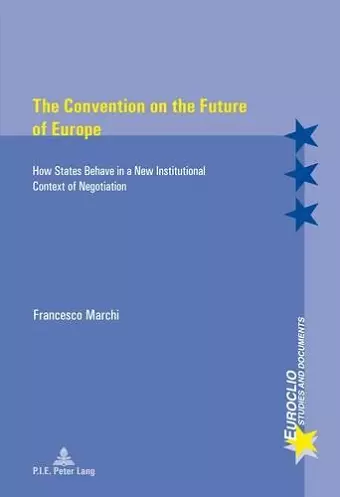The Convention on the Future of Europe
How States Behave in a New Institutional Context of Negotiation
Format:Paperback
Publisher:Peter Lang AG, Internationaler Verlag der Wissenschaften
Published:30th Mar '15
Currently unavailable, and unfortunately no date known when it will be back

The negotiation of new treaties, containing important institutional innovations and reforms, has been a constant challenge for the EU ever since the 1950s. When compared with the classic intergovernmental conferences, the Convention on the Future of Europe stands as a Copernican revolution that radically altered the method of treaty change. For the first time, Member States agreed to share their constituent power with representatives from the European institutions, as well as from the national parliaments. Adopting a multi-disciplinary approach merging history, political science and negotiation analysis, this book examines the origins of this new method, taking into account previous experiments of a constitutional nature such as the EPC, the Spinelli Draft Treaty and the convention that drafted the Charter of Fundamental Rights. It also analyses how this new method might have influenced the negotiating behaviour of government representatives. Using a case study approach in two specific policy areas that were negotiated at the European Convention – firstly, the reform of the EU’s institutional architecture and secondly, the adoption of a legal personality and the simplification of the legal instruments – the author explores how the characteristics of the issues under negotiation influenced the dynamics in the Assembly and, specifically, the behaviour of representatives of the Member States.
ISBN: 9782875742483
Dimensions: unknown
Weight: 450g
314 pages
New edition